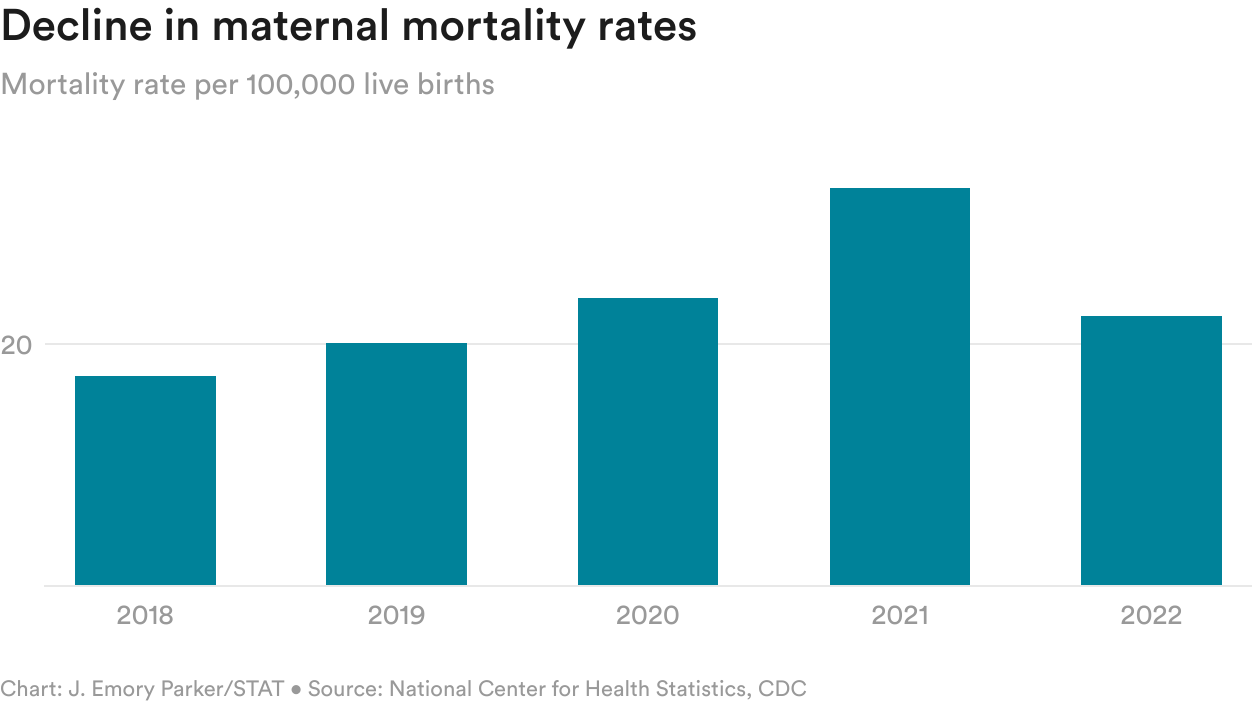maternal mortality
Maternal mortality rates dropped in 2022, per CDC. Can they stay down?

The U.S. maternal mortality rate fell significantly in 2022, down to 22 deaths per 100,000 live births from almost 33 the previous year, per new CDC data. The number of people who die while pregnant or in the six weeks after pregnancy increased steadily from 2018 to 2021, with an especially dramatic increase as the pandemic began. Those numbers came into question this year after an independent study suggested the CDC overestimates the national maternal mortality rate. The researchers recalculated and determined the rate was steady around 10 deaths per 100,000 births between 1999 and 2021.
The CDC has stated that it stands behind its findings. The question now: Will maternal mortality rates continue to drop? While the CDC has not yet announced rates for 2023, some researchers expect that it increased in states with new abortion restrictions. Read more from STAT contributor Elizabeth Cohen.
rare disease
Gene therapy may alleviate skeletal defects tied to rare inherited disease, per study
Babies with severe Hurler syndrome start displaying symptoms at birth. A gene mutation that disrupts enzyme function leaves them with a short stature, spinal defects, and extremely stiff joints — complications that greatly limit their quality of life. But new research shows that delivering a one-time gene therapy to toddlers successfully staved off those problems for years.
The study participants grew to heights within average norms, and had far more flexible shoulder, hip, and knee joints than untreated children. The Phase 1/2 trial followed just eight children over a few years. But if the benefits endure, it's possible the gene therapy could offer patients more life-changing outcomes than bone marrow transplants, the current standard treatment for Hurler syndrome. Read more from STAT's Drew Joseph about the experimental therapy and what's next for the team behind it.
first opinion
A new bill could improve the supply of baby formula
In February 2022, Abbott pulled its baby formula from shelves after four babies became sick with bacterial infections. The company ended up shutting down its main Michigan-based production plant, which at the time produced more than 40% of all U.S. formula. As a national shortage took hold, Martha Gershun scrambled to find a formula for her twin grandsons, who were born nearly three months early.
In a new First Opinion essay, Gershun and U.S. House representative Rosa DeLauro argue that helping smaller companies compete against large formula makers could make shortages a thing of the past. Earlier this year, DeLauro introduced the Infant Formula Made in America Act, which would provide tax credits for formula manufacturers with less than $750 million a year in annual sales. Read more on how the bill could give smaller companies a leg up.


No comments